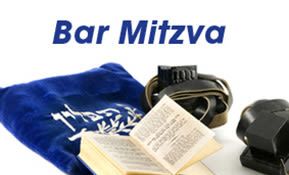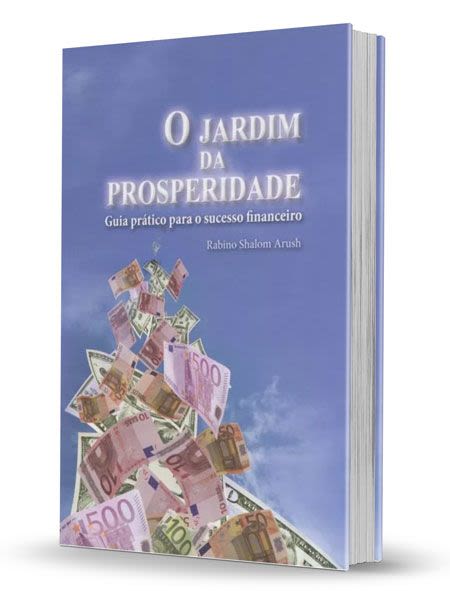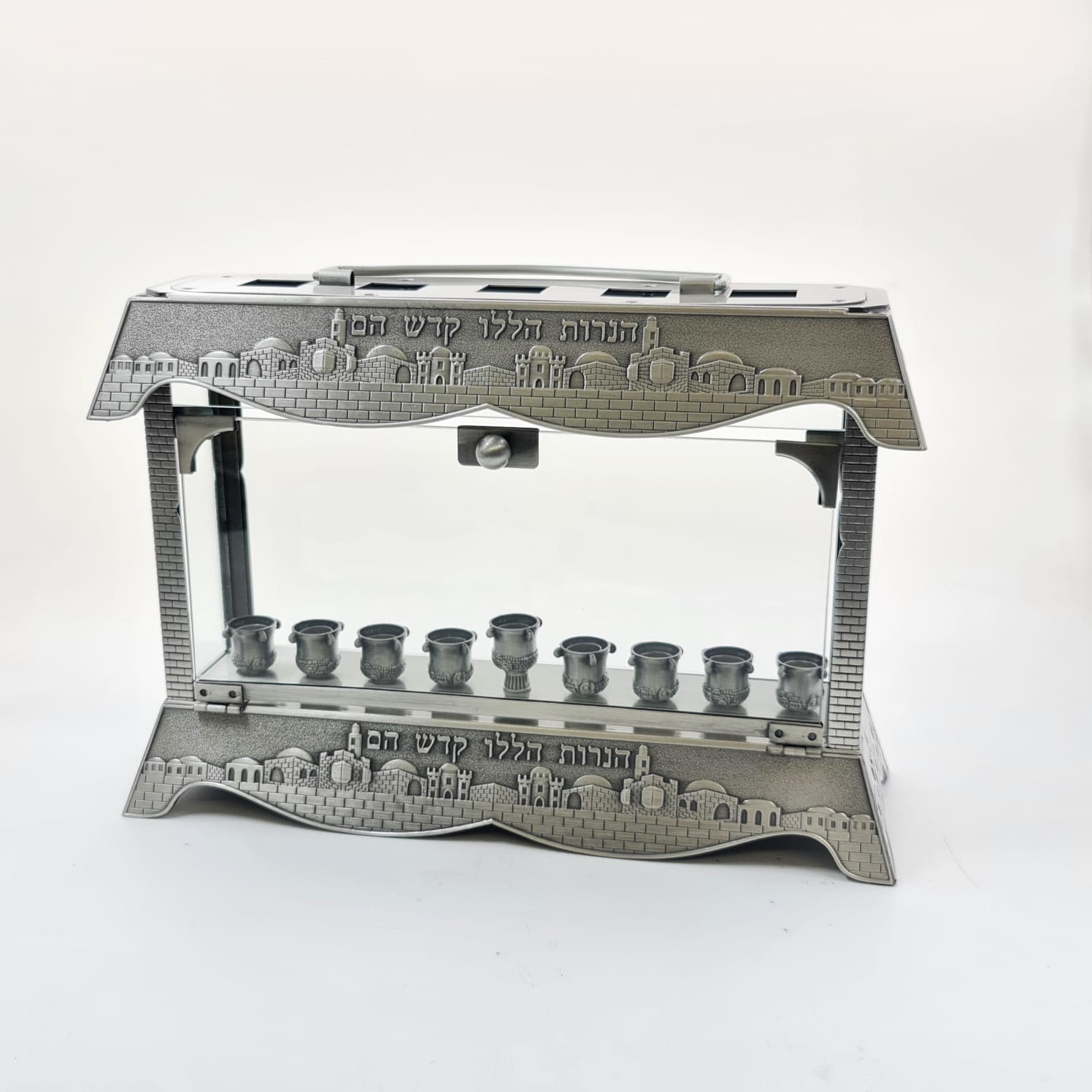
Eliahu Comes Again
Five year old son Yisrael – “Srulic” – learns the secret of Kaddish from Elijah the Prophet, who descends from the upper worlds to teach the little orphan Torah…

“The Baal Shem Tov – Early Years”, Part 3
In the last edition, Rebbetzyn Sarah took her five year old son, Yisrael, to the daily morning minyan to say Kaddish for the soul of his father, Rabbi Eliezer.
It happened that two men came to the little study room next to the synagogue; and there they sat down to study Torah.
When Sarah's little Yisrael arrived, he heard a sweet chanting that was new to him; and he ran to the small study-room to see what it was. There he found two men whom he didn't know, strangers who weren't from this village, chanting away as they concentrated on their Torah study.
Yisrael listened carefully and heard them discussing the reason why the Sages composed the kaddish – the mourner's prayer that he said in Aramaic and not in Hebrew at every synagogue service. They discussed how it is a very great and holy prayer and there is not another prayer like it. If the angels heard people saying this prayer, they would be intensely jealous that it was not given to them to say – and there might be trouble. So it was composed in Aramaic, which the angels do not understand.
The little boy was gifted with a pious soul. When he entered the synagogue and began saying kaddish, he merely had to close his eyes, and he knew that angels were gathered there to hear his kaddish, and they were jealous indeed that he could say such a beautiful prayer in Aramaic, a language they did not understand. From time to time, Srulik even sensed that his father was also there having come from paradise, the Garden of Eden, to listen with great joy to his kaddish.
There were even times when it was clear to him that as they heard the men in the synagogue answer amen his kaddish, the angels also answered amen. But the little Yisrael found his greatest happiness when, with the eyes of his mind, he could see his father, just as remembered him, nodding his head and moving his lips to answer amen with everyone else.
In the women's section of the little synagogue, his mother Sarah always sat through the morning prayer just to hear him say the kaddish. And whenever she heard the beautiful chant of her "little angel," the poor widow forgot all her troubles. She forgot all hunger and poverty that they suffered at home. She forgot how hard it was to earn a living. Then she became the happiest mother in the whole world. For where was there another boy in the world who could chant the kaddish as sweetly as her little son Yisrael?
Sarah knew well how to keep her secret. She would never tell a soul in the world that Eliyahu haNavi (the prophet) had come to her home to promise that this boy would be born, and he had foretold that the boy would be a wonder-child who would bring the Divine light of holy knowledge to the world.

How well she remembered Eliyahu haNavi (Elijah the Prophet). He had come to her home on the Sabbath, looking like an ordinary poor beggar with his knapsack and walking- stick. And when the Sabbath ended he gave her dear departed husband and her the wonderful news that this son would be born to them. Often she wondered what holy spirit lived in this little son of hers – most likely some soul that had lived before perhaps in the holy cities of Jerusalem, Safed and Tiberias – a famed, pious soul that now came again into the world to lead, guide and inspire the Jewish people.
On this morning after the men in the synagogue finished Aleynu, the last prayer of the morning service, and little Israel chanted the final kaddish of the morning, as always Rebbetzyn Sarah peered between the curtains that separated the mens and women’s sides of the shul so that she could watch him. This time, she noticed that there were two strangers among the men: poor beggars from their looks, who were passing through the village with their knapsacks and walking sticks. Soon, they would probably make the rounds knocking on doors to ask for a bit of money or a little food. But suddenly, it struck her that one of these two strangers looked very much like Eliyahu haNavi, just as he looked on that Sabbath when he came to her home with his wonderful news.
She looked again, and knew there could be no mistake. It was the same wonder-spirit from Heaven, appearing again on earth as a simple beggar.
For a moment she was tempted to call out to the shul-goers, "Do you know who that poor man is? It is Eliyahu haNavi?" But then she thought better of it. No, it would not be good to create a big hubbub. She owed that holy man a debt of gratitude for the good news he had brought her and she knew he did not like to have everyone know who he was when he made one of his special appearances on earth. A great happiness filled her heart. How fortunate she was to have seen Eliyahu haNavi not once but twice! But suddenly she had a worrying thought: Perhaps her little boy had not noticed this wondrous "guest" with the knapsack and the walking-stick. She had better tell little Yisrael to go over to him and say Shalom Aleichem. But then she decided not to tell him who the man was, because that would only confuse him.
So she waited for her child at the entrance of synagogue. As soon as he came out, she took him by hand and whispered, "Did you see the new people in synagogue?"
"Oh yes, mother," he replied. "And I heard the one with the knapsack studying Torah."
"Did you say shalom aleichem to him?" asked his mother.
"I certainly did," said the boy, "and he answered back. He was very friendly."
The mother's heart filled with happiness. It could be no mistake: Eliyahu haHavi had come to see her son Srulic.
"Tell me," she asked. "Did you hear what he was studying?"
The boy answered immediately, "Yes indeed. And I remember every word."
For a while the mother and her child walked together feeling a deep joy and contentment. Rebbetzyn Sarah was so very happy that her precious son had also seen Eliyahu haNavi, and had spoken to him. Then suddenly she remembered what he had said – that he remembered the Torah that Eliyahu haNavi had studying.
"What was the stranger learning about earlier this morning?" she asked.
"Oh," he replied, "that the sages made the Kaddish in Aramaic because the angels do not understand that language, and they shouldn't be jealous of us that we can say such a beautiful prayer and they can't."
It was all the Rebbetzen Sarah could do to keep her from dancing for joy, right there in the street. For now she was sure that Eliyahu HaNavi had come mainly to hear her "little angel" say Kaddish. When he returned to heaven, he would surely tell her husband, Reb Eliezer, all about the boy. In her great happiness, she embraced her child and kissed him. Still she kept her secret. She thought it best not to tell her child just who the "poor man with the knap sack" was.
It was not long, however, before Israel had a secret of his own, that he kept from his mother.
To be continued.
***
Tzvi Meir Cohn attended Yeshiva Hadar Hatorah in Crown Heights, Brooklyn after completing his university studies in Engineering and Law. While studying at the Yeshiva, he discovered a deep connection to the stories and teachings of the Baal Shem Tov. His many books about the Baal Shem Tov can be found on Amazon. He can be contacted at howard@cohnpatents.com.













Tell us what you think!
Thank you for your comment!
It will be published after approval by the Editor.